With over $200 Mn in funding, Meesho is ready for the next stage in its journey
The online reselling platform has 21K suppliers and 2 Mn resellers on its platform, with a target for 20 Mn resellers by 2020
Besides the fashion vertical, the company also has plans to enter travel, beauty and FMCG
The Inc42 & AWS series — Scaling From 1 To 10 — continues with a deep dive into social commerce and reselling platform Meesho.
Back in 1892, one of the world’s finest authors, Nobel laureate Rabindranath Tagore had penned a classic short story ‘काबुलीवाला’ (Kabuliwala). A story of an Afghan merchant who used to come to India’s Kolkata to sell dry fruits and soon became friends with a five-year-old girl Mini.
The story was later adapted into a feature film by Hemen Das in 1961.
The concept of such a kabuliwala also known around India as pheriwala or a huckster selling small goods door-to-door has been ever-present in the Indian context — whether it is for selling vegetables, fruits, kitchenware or even something like women fashion and other small household goods in India’s rural and semi-urban market.
Along with local Kirana stores, these street-side sellers form a significant part of India’s unorganised retail market. With Flipkart, Amazon and Paytm Mall setting the stage for ecommerce, India’s appetite for online shopping has grown tremendously. But the fact of the matter is that the ecommerce market remains tiny compared to the country’s retail market which is estimated to be worth $700 Bn, led by unorganised players. This means there are still models to be explored to cover this distance.
For centuries, unorganised retail has been a deeply-rooted aspect of the social fabric of India. Despite ordering food, fashion and other stuff online, people are still accustomed to the odd trip to the huckster for their dose of retail therapy, which comes with bonuses such as bargaining and relationship building. Is there any room for such a shopping culture in the context of ecommerce?
Social commerce platform Meesho cofounder and CTO Sanjeev Barnwal calls this the intent and the impulse-buying which is the hallmark of Indian consumers. And despite the advent of tech, he believes both are here to stay.
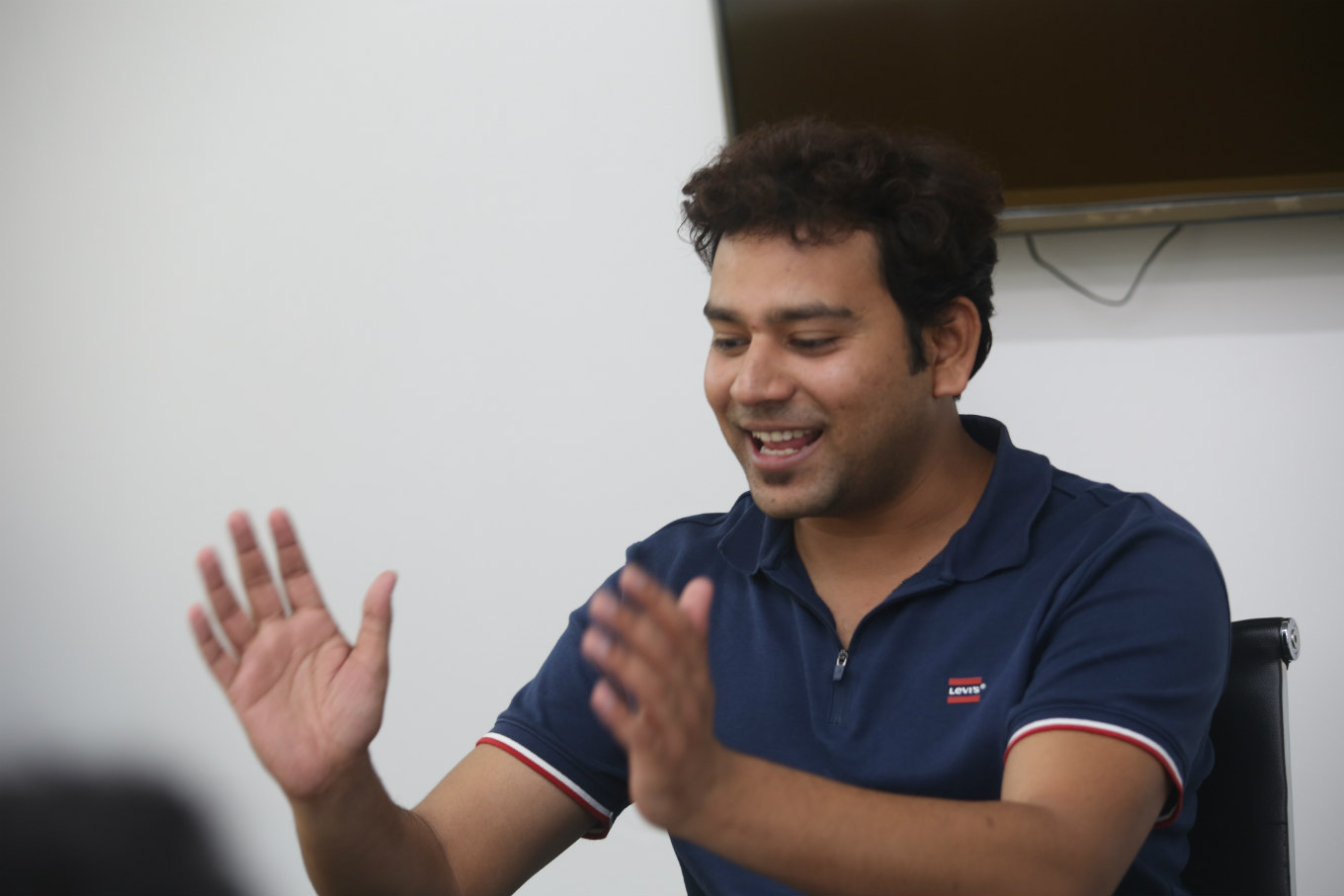
“It’s not that they [consumers] aren’t buying from Amazon and Myntra but they are also buying from these resellers. For customers, these are mostly impulse-buying in comparison to their intent-filled shopping where they scroll other marketplaces to search for what they need.” – Sanjeev Barnwal, Meesho
Social Commerce Platform Meesho Pushes Resellers Online
Even before the Reliance Jio data revolution, Indians were hooked on to WhatsApp. And after 4G data became ubiquitous, the question was: ‘Why not show all the products to end-consumers on social media first, let users make their picks on WhatsApp and then supply only the ones shortlisted?’
Speaking to Inc42, Barnwal said, “For end customers, it’s very difficult to trust the small suppliers. So our resellers play the role of curator and influencer. They build trust by filtering for the right supply. They engage with customers, understand their concerns and take the onus of ensuring the right quality for them.”
In the era of Amazon and Flipkart, Meesho offers an entirely different experience in the form of a social commerce platform, an online platform for resellers. Bringing a network of over 21K suppliers and manufacturers on its platform, Meesho lets resellers shortlist products and share the photographs of these with their network of consumers, who could be anyone in their family or friends network or people they know. The resellers are allowed to sell at the prices they deem fit for their target consumers.
Once shortlisted by consumer, the reseller places the order with Meesho and enters the address details for the delivery which again is taken care of by Meesho. Barnwal said, “During the entire buy-sell process assist, nowhere is Meesho mentioned to the end-consumers.”

“Our branding is done through our resellers. For us, our customers are the resellers who bring in more resellers through referrals. Our referral works among resellers and not buyers,” he added.
Making A Fundraising Machine
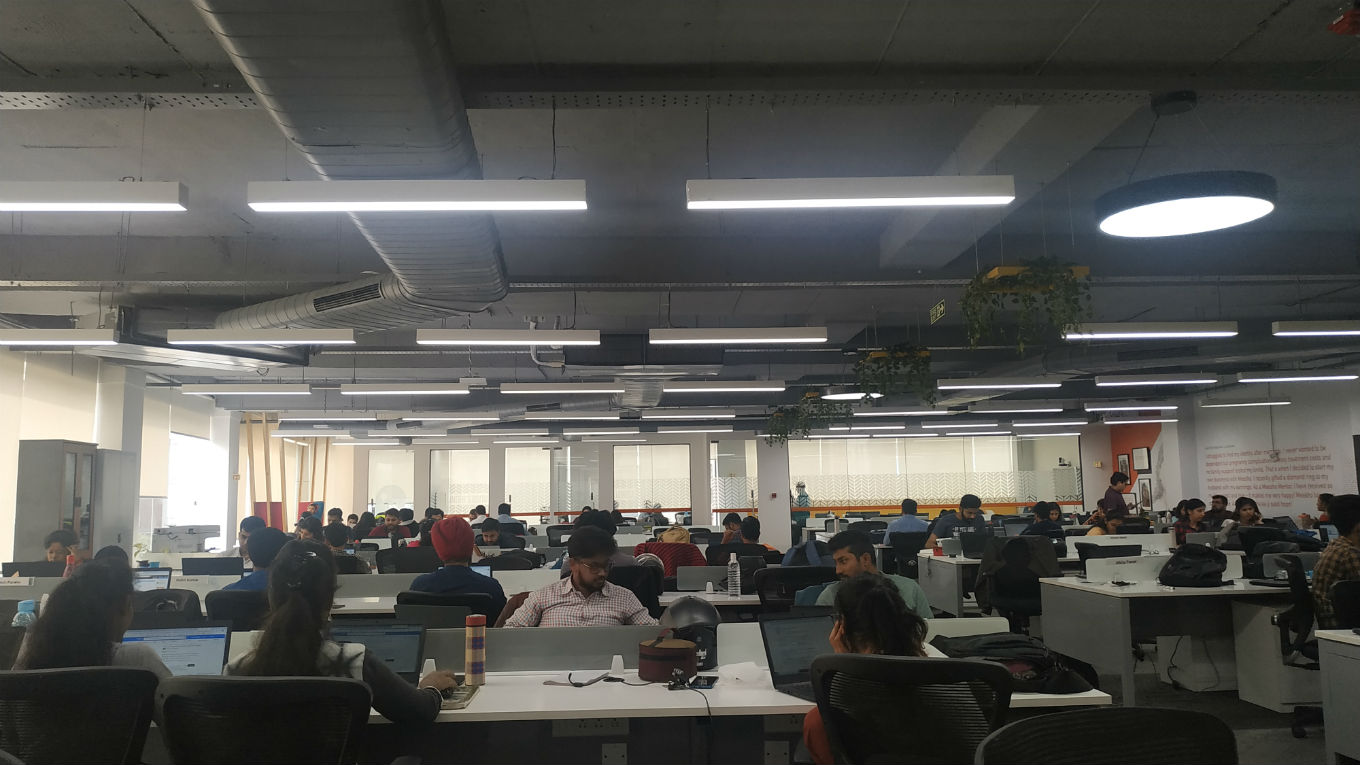
In a very short span, Meesho has managed to attract big investors including Prosus & Naspers, Facebook, Sequoia Capital, RPS Ventures, Saif Partners and more. Since November 2018, Meesho has successfully raised funding of over $200 Mn, which includes Series C, Series D and corporate funding round by Facebook.
On Facebook’s investment in Meesho, early this year, Barnwal said, “By providing a reselling platform, it is empowering a lot of women in India to help become financially independent. We shared this common vision of empowering women with Facebook. That is probably a major reason why Facebook invested in us.”
“In many cases, the resellers’ income from Meesho is a significant portion of their household income. Which means we are having a tremendous impact on society. And, we see this a lot through our conversations with them.”
Facebook too runs its own emarketplace, where anyone can sell anything — new or used. Barnwal added, “In fact, a lot of Facebook Marketplace stuff is from Meesho. Thanks to the resellers.”
Facebook has currently invested $25 Mn in Meesho. Is it likely to collaborate in a deeper way with Meesho in the future?
“How this collaboration [Facebook] will pan out, we are yet to see. Our resellers are already on Facebook and sell it to the end consumers using Facebook Groups,” Barnwal said.
The million-dollar question is how Barnwal and Aatrey closed three funding rounds back to back raising $200 Mn within 10 months! For most Indian startups, this is as good as a dream. But it also shows the power of calibrating a brand and vision that meets the VC criteria.
While the founders are both IITD alumni, which is one of the most reputed engineering institutes in India, the duo was not only in the same department — electrical — but also stayed in the renowned Jwala hostel. For many, who may not be aware of this famed hostel, Jwala is also called the ‘Koramangala of IIT Delhi’. Some notable alumni from the Jwalamukhi hostel are Flipkart founder Sachin Bansal, NIIT cofounder Vijay K Thadani, IIM A director Ashish Nanda among others.
While it helped convince the VCs about the founders’ profiles, selling the product idea or model is another significant criterion for VCs. And, the Meesho product model too soon got street cred, as the startup was shortlisted for Y Combinator 2016 cohort. Besides, the startup was also based in Koramangala, the heart of the Bengaluru startup hub. The founders had checked off all the right VC boxes.
However, it’s not the existing reselling platform that was shortlisted by Y Combinator — Meesho was an entirely different product at the time, a platform providing online presence to resellers similar to IndiaMART.
The Making Of Meesho
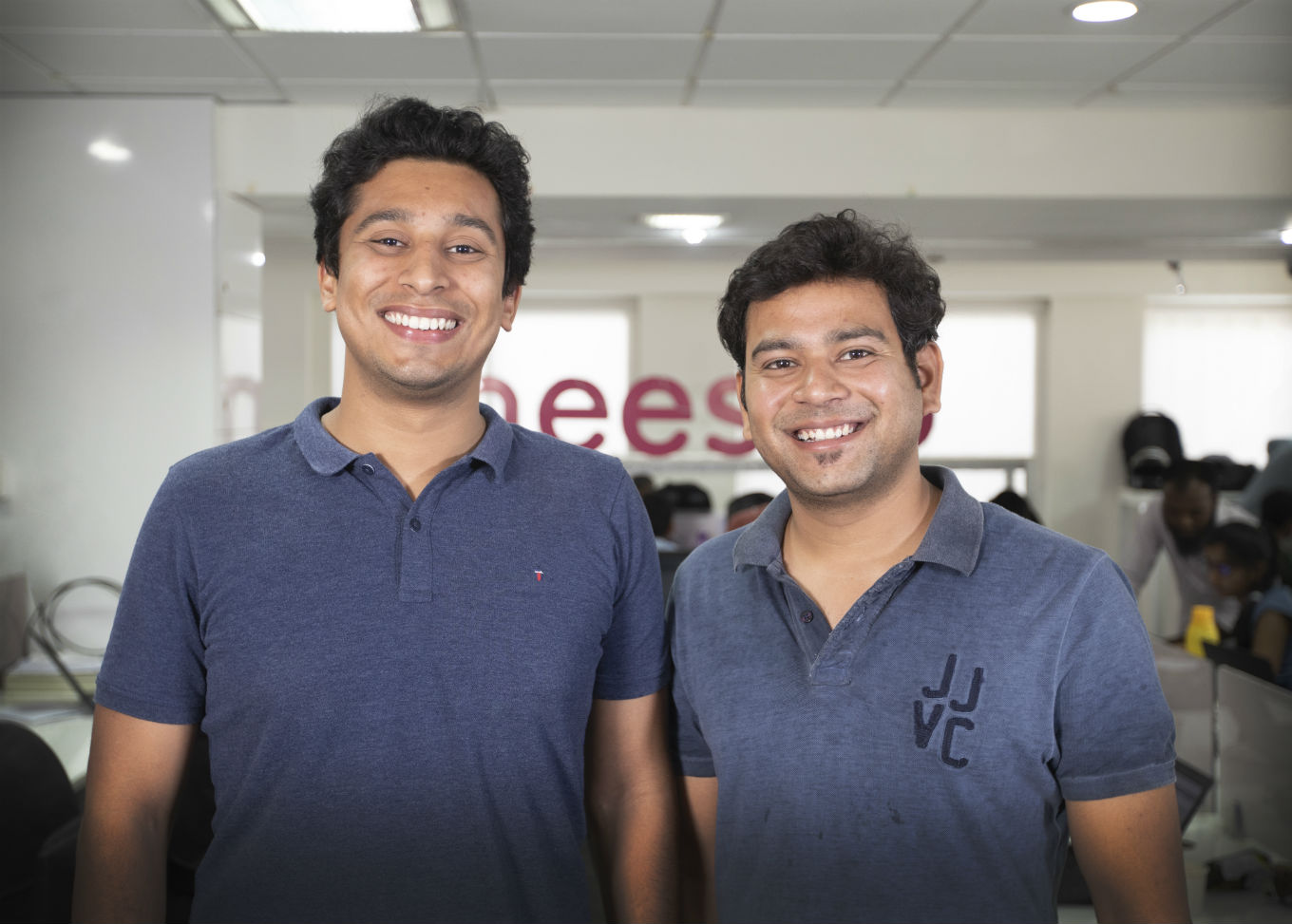
Barnwal recalled the story of Meesho’s evolution. The product has constantly been changing since the beginning. This is not a case of founders fermenting an idea long enough before starting up, but a story of two corporate professionals who quit their jobs wanting to launch their startup; yet, not sure of what it would be.
“After graduation, Vidit went into non-tech, while I joined Sony Headquarters, Tokyo for three years. I was responsible for creating new software layers for Sony DSLR cameras. After that, I joined Sony Mobile. This was in 2015. I was also trying to figure out what I should pursue next in life. It just happened that one of the startups in Bengaluru approached me for help. They needed help in building a chatbot. This is when I reached out Vidit as I didn’t know the Bengaluru ecosystem quite well,” Barnwal recalled.
Realising that a startup would be a long-term affair, the two left their jobs to start brainstorming and study market opportunities. “We just decided that there is no point in doing the job today if we are sure to startup tomorrow.”
It took the founders two pivots to reach the point where Meesho is today. In the beginning, Barnwal said, they “were building something that is hyperlocal for fashion. What we were doing was very simple. We called it ‘Swiggy for Fashion’.”
Meesho mapped stores around a locality and allowed users the option of trying before buying. Customers could order items which are delivered. They could try all the clothes and keep the shortlisted ones and return the rest.
Meesho ran this model for two months. However, soon it realised that there were multiple problems with the idea and implementation and the behaviour of users.
In the meantime, they found out that the local stores had already started leveraging WhatsApp and Facebook as a platform to reach their customers.
“What we observed that these local stores were also collecting customers’ WhatsApp numbers and whenever some new outfits came in, they used to share the images with the customers to gauge interest.”
The founders did more research on how Meesho could leverage social media such as Facebook and WhatsApp and started collating dedicated groups of sellers and buyers on Facebook.
After doing lots of market research, they launched Meesho 1.0. This was mainly focused towards creating an online presence for resellers on Meesho. Resellers were asked to upload their own inventory, manage orders, and the integration with their social media networks.
“With this model, we got shortlisted in Y Combinator ‘16 batch. We kept talking to our users. How could we make a better experience for them? And, we found, people were not able to find new products, new suppliers on the app. So, we continued to run Meesho 1.0 and we started experimenting with what we called Meesho 2.0 which is the current model. And, it went viral,” said Barnwal.
Meesho: Competition And Challenges
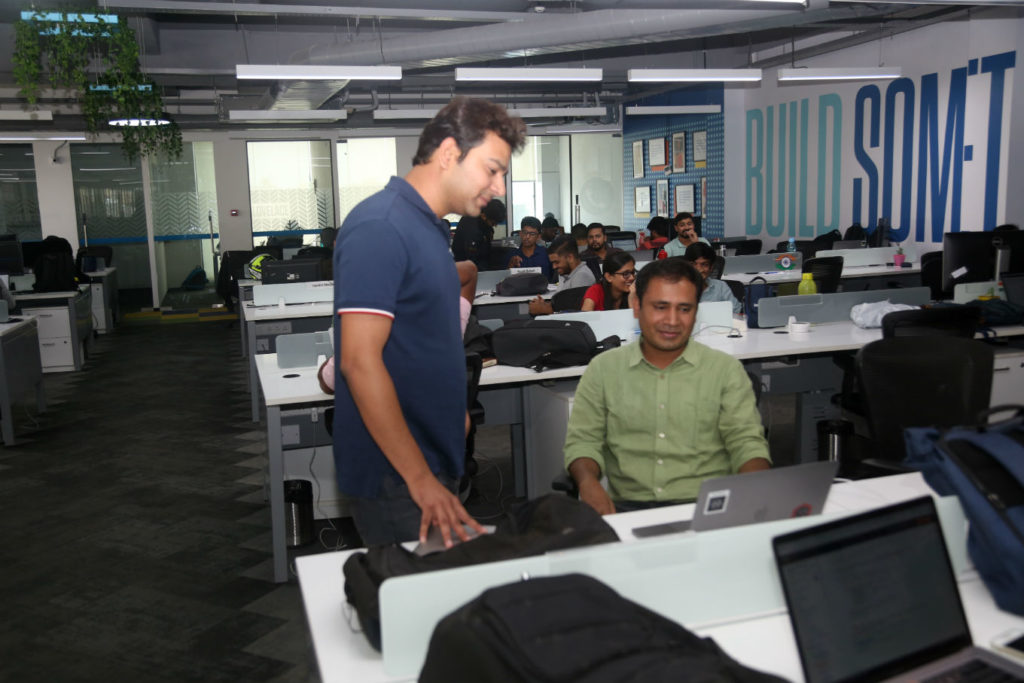
“We have built a trusted marketplace for suppliers and resellers. Meesho doesn’t communicate with end consumers. Our resellers do”
Regardless of whether it is an online reselling platform or if it’s Myntra or Amazon, the eventual model is ecommerce. Is that Meesho’s assessment too? Barnwal believes that resellers engage with customers, understand their concerns and take the onus of ensuring the right quality for them, which is something ecommerce platforms don’t always offer.
“We are not facing any competition as of now. Right now, We see this as an alternate way to promote ecommerce, promote social media to the next 500 Mn Indian users. It has become a very convenient medium for them,” Barnwal said.
Market Strategy: The 10X Growth Target
Meesho currently has a team of 750 people, and claims to have 21K suppliers on its platform along with a network of 2 Mn resellers. The startup is targetting 20 Mn resellers by 2020. With 50% of Meesho’s audience coming from Tier 2,3,4 cities, the company claims to have a presence in around 1000 cities.
In order to expand its marketbase by 10X, Meesho is now looking to bring in those people who always wanted to do something on their own, particularly women who are home-makers. While part-time employment opportunities are available for women in Tier 1 cities, it’s not the case in smaller cities. “Without any capital investment Meesho provides them a very powerful platform in that sense,” Barnwal said.
The company is also experimenting with new categories on the supply side. Such as travel packages where resellers are trying to sell travel packages to the end consumers. Right now, a majority of them are women fashion and kidswear, but Meesho is currently experimenting with travel, FMCG, beauty etc.
The company has relied on Amazon Web Services (AWS) for its cloud server requirements so far and the expansion into new categories is also built around this infrastructure. Barnwal said, “AWS is clearly the right choice for us as a cloud provider. When we started it definitely was what we wanted as it had a flexible set of solutions which aptly suited our requirements.”
Barnwal also spoke about how using the cloud computing provider helped the startup in its growth phase. “And as a startup, you don’t need to invest extra on managing the infrastructure, you don’t need to spend extra time or resources on it. AWS has been more like a partner to us, since reliability is very crucial in mobile commerce.”
Working Towards A Vision

“It’s very important since the beginning that employees do share the startup’s common vision.”
From recruiting to retention, hiring the right talent has been a challenge for startups across the world and Indian startups are no different. Barnwal said that while it’s easier now to acquire talent, thanks to Meesho’s brand value, it was not the case in the beginning. Convincing good candidates about the vision of the company and proving that the fit is right were challenges.
“Currently, we are trying to build a great team by focussing on a lot on the skillset at the time of hiring which we have seen work out really well. For instance high ownership — people should try to take ownership of whatever they are doing. Whenever we interview someone we try to find examples when they have shown ownership in their work. Try to understand their perspective about values.”
Barnwal also counted problem-solving as a key asset among employees and this is a crucial part of the culture at Meesho. “We don’t track the working hours. Largely, we give employees lots of freedom. And we throw problems at them. It’s the result that matters,” Barnwal said.











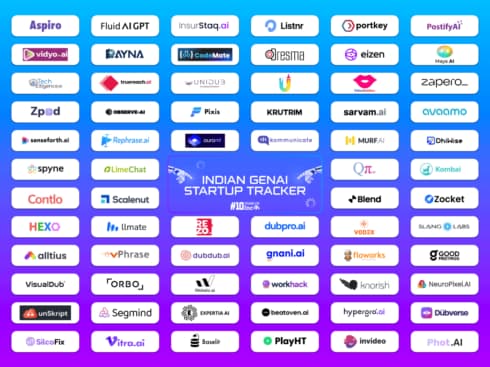
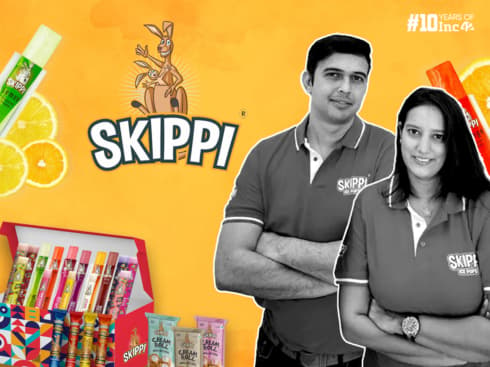




















 Ad-lite browsing experience
Ad-lite browsing experience